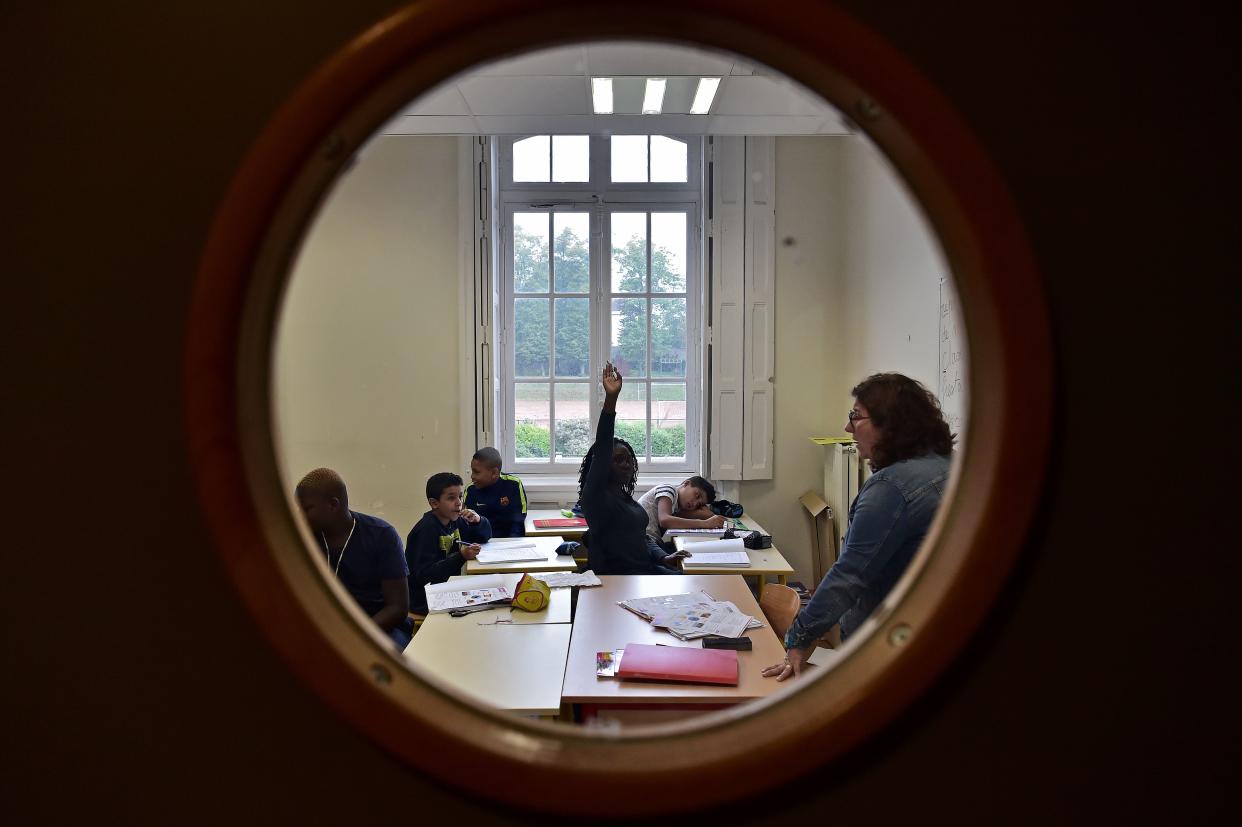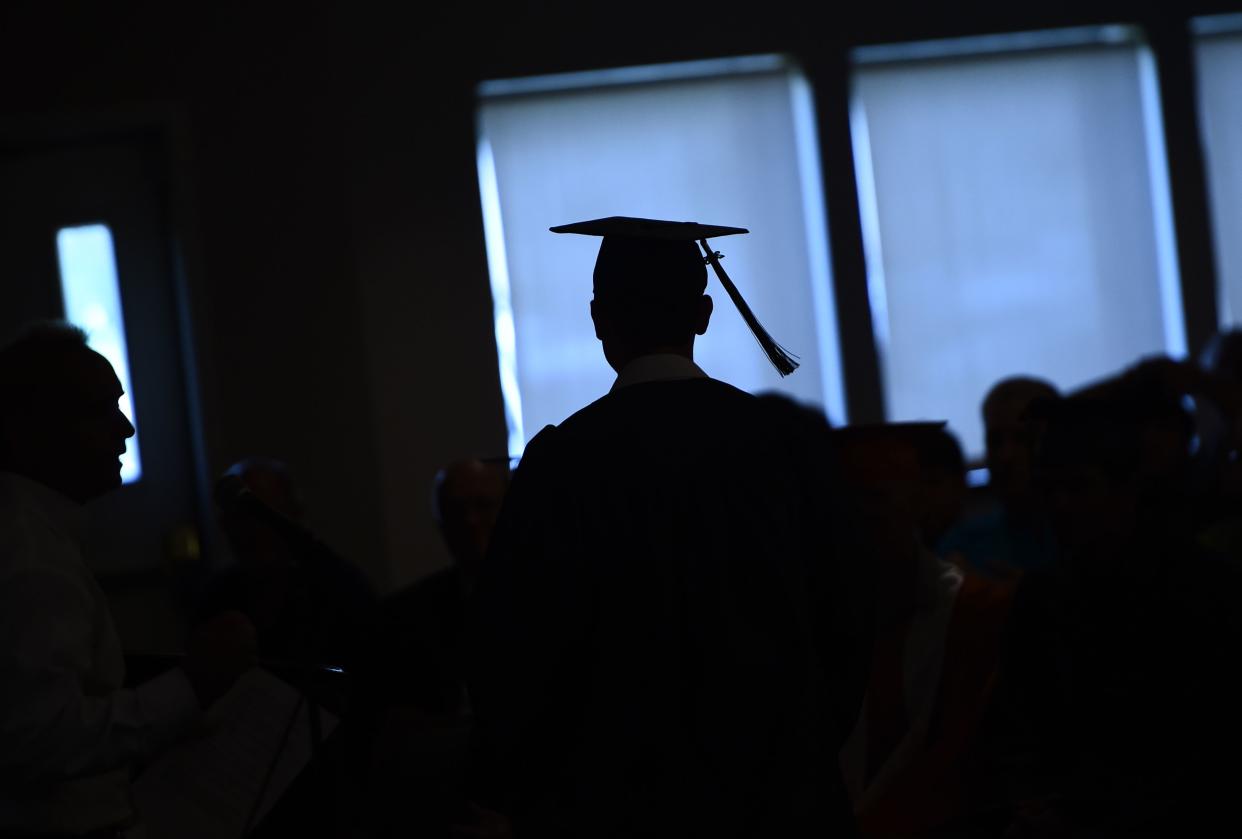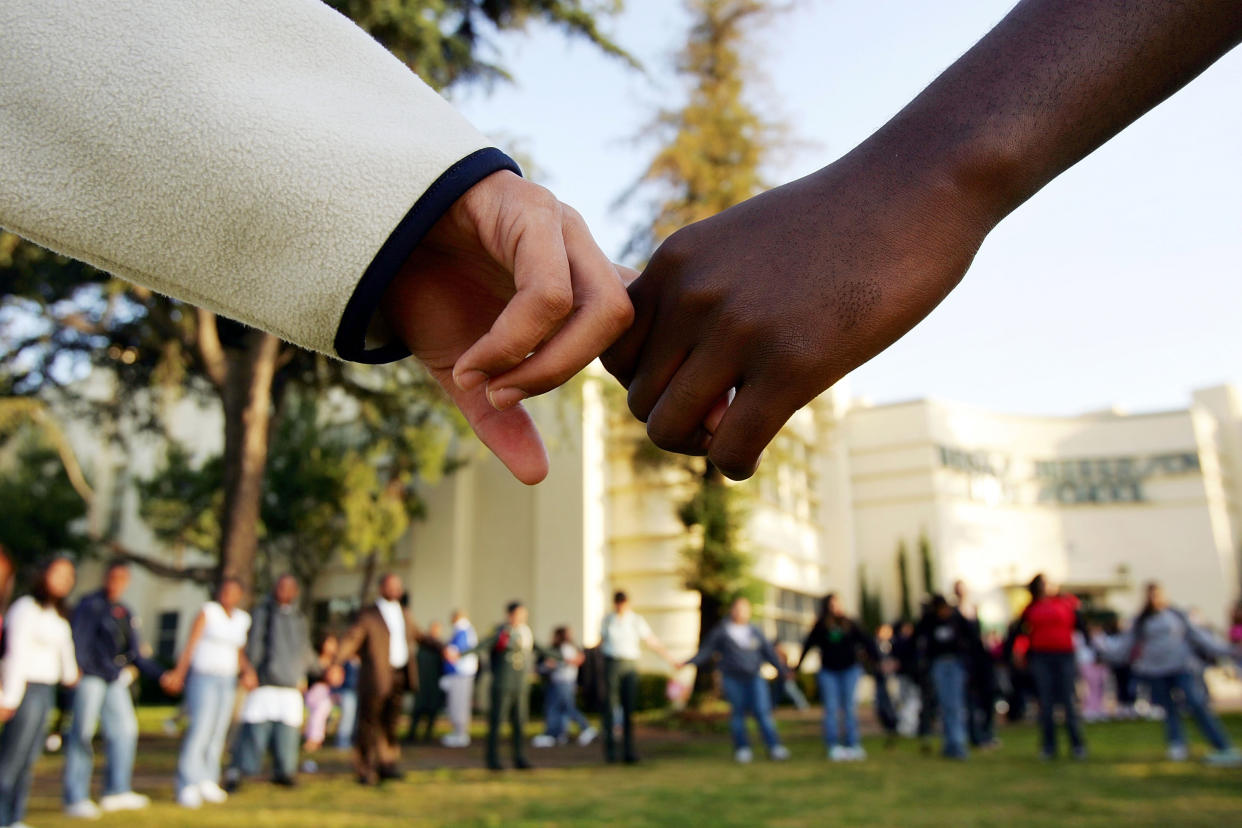Author of Texas bill to ban critical race theory says Martin Luther King Jr. would approve of it
Republican Texas state Rep. Steve Toth firmly believes that a curriculum that teaches young people about systemic racism is itself a form of racism.
Toth is the primary author of the state's House Bill 3979, which seeks to ban the teaching of critical race theory — an educational movement that aims to contextualize recent and historical events in a framework of systemic racism — in public schools.
“This bill is a direct reflection of the 1964 Civil Rights Act,” Toth told Yahoo News in a phone interview this week. “It echoes Dr. King’s wish that we should judge people on the content of their character, not their skin.”
Toth’s bill, which has passed in both chambers of the Texas Legislature and is headed to Gov. Greg Abbott’s desk for signature into law, states that social studies and civics teachers are not allowed to discuss the concept that “one race or sex is inherently superior to another race or sex,” or the idea that “an individual, by virtue of the individual’s race or sex, bears responsibility for actions committed in the past by other members of the same race or sex.”

The bill also states that teachers cannot be compelled to talk about current events, and if they do, they must “give deference to both sides." While supporters say this provision promotes objective teaching, critics counter that it limits honest conversation around the deep-rooted issues surrounding the history of race and racism in the U.S.
“The more people learn about critical race theory, whether Republican or Democrat, the more they oppose it,” said Toth, who noted that he is also a preacher, and said God led him to write this bill limiting the teaching of what he termed “an offshoot of critical theory and Marxism.”
Yet he also said his bill wouldn’t prevent a discussion about critical race theory, but would prevent teachers from endorsing what he sees as its conclusions.
“We’re not saying you can’t talk about critical race theory,” he added. “We’re saying you can’t tell a kid they should feel shame because of the color of their skin.”
The language of the bill reflects a nationwide trend among GOP officials to enact laws that ban the teaching of critical race theory, the framework of which was developed in the 1970s by legal scholars including Derrick Bell and Richard Delgado. In recent years, critical race theory has become a catchall term and a flash point of debate for parents, politicians, teachers and administrators.
“The idea of a culture war in education conjures up a host of long-standing, never-completely-resolved disputes over things like sex education, the teaching of evolution, Ebonics, history standards and curriculum, and bilingual education,” Andrew Ujifusa wrote in an article published last month in Education Week. “These and other issues emphasize fundamental divides and power imbalances (real and perceived) in society.”

At least four states — Tennessee, Idaho, Oklahoma and Arkansas — have already placed limits on how race can be addressed in the classroom, and 16 states in all are looking to limit the way teachers discuss racism in school. The proposed restrictions have largely fallen along partisan lines, with Republicans pushing against the teaching of critical race theory and Democrats advocating for its continued implementation.
“It is important to understand that the ban on critical race theory is not actually about critical race theory, but larger aims at dismantling voices and initiatives that are advancing a more equitable society,” Mary González, a Texas resident and associate director of the National Public Education Support Fund, whose work focuses on making public education more equitable, told Yahoo News.
“The political pressure to advance anti-critical-race-theory legislation stems from grassroots folks who have been encouraged to believe misinformation about what critical race theory really is,” she said. “On a large scale, I believe we should show how banning critical race theory is bigger than a theory but actually a danger to our public education system as a whole.”
H.B. 3979 also bans the teaching of the 1619 Project, a long-form journalistic work written by Nikole Hannah-Jones and published in the New York Times that seeks to “reframe the country’s history by placing the consequences of slavery and the contributions of Black Americans at the very center of our national narrative.”

Like critical race theory, the 1619 Project sparked debate about how history should be taught in America. Several historians also criticized “the factual errors in the project and the closed process behind it.”
Zakiyah Ansari, advocacy director for the New York State Alliance for Quality Education, which fights for racial and economic justice in public schools, said Republican attempts to put limits on what teachers can talk about in the classroom are indicative of why critical race theory is needed.
“This smoke-screen attack on teaching the truth about America’s history of racism proves why we truly need critical race theory in our schools,” Ansari told Yahoo News. “Critical race theory is not about blame, it is about acknowledging what has truly happened in American history.”
The debate over how, exactly, America’s racial identity should be taught even divides educators. Paul Rossi, a math teacher at Grace Church High School in New York City, slammed his school’s policy of requiring educators to undergo antiracism training.
“I refuse to stand by while my students are indoctrinated,” he wrote in a scathing article posted on the Substack page of former New York Times opinion editor Bari Weiss.
“My school, like so many others, induces students via shame and sophistry to identify primarily with their race before their individual identities are fully formed,” Rossi wrote. “Students are pressured to conform their opinions to those broadly associated with their race and gender and to minimize or dismiss individual experiences that don’t match those assumptions.”

Melissa Smith, an adjunct professor at Oklahoma City Community College, takes a different view. She was forced to cancel her summer course on race and ethnicity after the Oklahoma Legislature passed House Bill 1775, which bans educators from teaching K-12 students certain concepts of race and racism. Smith, who is white, had taught the class for six years and believes it’s important for young people to learn about racial inequality in school.
“Our history of the United States is uncomfortable and it should make us uncomfortable and we should grow from that,” Smith said in an interview with the Washington Post. “And I tell my kids all the time, get comfortable being uncomfortable. And if I don’t make you uncomfortable in class then I’m not doing my job.”
Smith says she doesn’t teach that one class of people is superior to another, but she does confront white privilege. She also points out that the course was offered at a school where students were not forced to take it but instead chose to. Now she says she’s lost a major portion of her income as a result of the class's cancellation.

In an op-ed published last month in the Washington Post, Ronald J. Krotoszynski Jr., a professor at the University of Alabama School of Law and author of “The Disappearing First Amendment,” said that banning critical race theory is unconstitutional.
“Laws that seek to ban ideas that legislators dislike quite literally cast the ‘pall of orthodoxy’ these rulings decry,” Krotoszynski wrote. “And the First Amendment certainly protects the right of a state-sponsored college or university to address issues of race, class and inequality in its curriculum.”
Cover thumbnail photo: photo illustration: Yahoo News; photos: Chip Somodevilla/Getty Images, Scott Heins/Getty Images
_____
Read more from Yahoo News:


